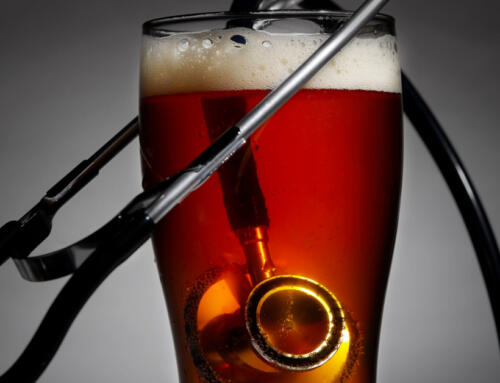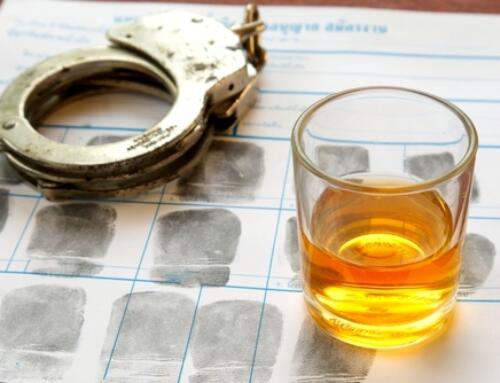As a DUI attorney in Philadelphia, Pennsylvania, I know that as the holiday season approaches, law enforcement agencies across Pennsylvania are preparing to use DUI checkpoints and roving patrols to increase DUI enforcement measures. If you have been drinking and do not have a designated driver or taking an Uber, the odds are that you will be detained at a checkpoint or pulled over on suspicion of DUI. In this article, I will discuss DUIs, the legality of DUI checkpoints, and the Accelerated Rehabilitation Disposition program.
What Should I Expect From a DUI Over the Holidays in Pennsylvania?
Any Pennsylvania DUI conviction results in serious consequences. Generally, a first DUI charge in 10 years is an ungraded misdemeanor offense. Mandatory minimum penalties can range from six months probation up to 72 hours in jail, and the sentences can be higher depending on the facts and circumstances. For example, if there is an accident, whether it is your fault or not, can result in additional charges and a harsher sentence. Many DUI convictions also result in a suspension of your Pennsylvania driver’s license or driving privileges, a drug and alcohol assessment, an ignition interlock device, and completion of the Alcohol Highway Safety School. Convictions for DUI also result in fines as well as payment of court and program fees.
A driver’s blood alcohol concentration (BAC) greatly affects the severity of the DUI charges that are filed and the sentence that is imposed. A minor, meaning someone under the age of 21, can be charged with DUI if their BAC is over .02. Adult drivers face different charges and penalties depending upon the precise BAC level, with drivers having a BAC over .16% receiving the most severe jail sentences and fines. Those drivers who refuse a blood or breath testing or who have drugs in their system face similar penalties as those with a BAC over .16%.
Are DUI Checkpoints Legal During the Holidays in Pennsylvania?
In Pennsylvania, a DUI checkpoint is a well-marked, stationary roadblock conducted by the police for several hours at a time. The officers on the scene make brief, suspicionless stops to check for driver intoxication, using a predetermined objective standard in determining which cars to stop. Such roadblocks are advertised in advance and are situated at roadway locations where drunk driving is known to have occurred.
In Pennsylvania, there are five requirements that must be met for any DUI checkpoint:
- The stop has to be brief and must not include a physical search;
- There must be sufficient warning of the checkpoint;
- The decision to conduct a checkpoint must have prior administrative approval;
- The choice of time and place for the checkpoint must be based on local experience as to where and when intoxicated drivers are likely to by driving;
- The decision as to which vehicles to stop must be established by administratively pre-fixed, objective, and random standards, and must not be left to the discretion of the police
If any of the requirements were not met at the DUI checkpoint, then any evidence obtained can be suppressed. To read more about DUI checkpoints, please refer to my article entitled, “5 Legal Requirements for a DUI Checkpoint in Pennsylvania.”
What is Accelerated Rehabilitative Disposition (ARD) in Pennsylvania?
If you are arrested for a DUI over the holidays, entry into the Accelerated Rehabilitative Disposition or ARD Program is one way to resolve your case that will not result in a criminal conviction. ARD is a program that all Pennsylvania counties are required to have in place for individuals with no criminal record (or a very limited criminal record) who have been charged with a relatively minor, non-violent offense(s). According to the Pennsylvania Rules of Criminal Procedure, the program is intended to encourage offenders to make a fresh start after participation in a rehabilitative program and offers them the possibility of a clean record if they successfully complete the program.
The Accelerated Rehabilitation Disposition program for your DUI case will be conducted by the office of the District Attorney in the county where the offense was committed. While you will not technically be on probation, ARD is similar to probation in that you are monitored by the courts to make sure you are complying with all program requirements. If you fail to meet the requirements of your ARD program, you may be kicked out of it and then you will have to face trial on the charges.
The specifics of each ARD are unique, your criminal defense lawyer can work with the district attorney’s office to make sure that you get the most out of this opportunity. ARD programs are usually one year in duration, and the court-ordered requirements may include:
- Completion of counseling. Drug and alcohol counseling is usually required for certain drug offenses or DUIs with high blood alcohol levels. An evaluation will be ordered to determine if you are in need of drug or alcohol treatment.
- CRN Evaluation. Before admission into ARD, everyone must complete a CRN evaluation to make sure you do not have any prior DUIs in other counties or states.
- Alcohol Safe Driving Class. Everyone entered into the ARD program must complete Alcohol Safe Driving Class. PennDOT will not return your suspended license until you complete these classes.
- No further charges. If you are charged with any other offense during the ARD process you will likely be removed from the program and the original charges will be reinstated.
- License Suspension. While a DUI conviction can result in a one-year license suspension, ARD often requires a reduced 60-day license suspension.
- Pay costs. You will be required to pay prosecution and supervision costs which could be over a thousand dollars. Your lawyer can request the District Attorney’s Office offer a payment plan if that suits you best.
- Community service. This is required for most cases and its details vary greatly by offense and location.
- Abstain from alcohol or drugs. If you were charged with a drug or alcohol offense, you may have mandatory testing to make sure that you are abstaining from such substances.
What are the Advantages of the ARD Program in Pennsylvania?
You will not be “convicted” of a crime if you enter the ARD program. Furthermore, the loss of your operating privileges will be for a short period of time, rather than the full year for a first time DUI conviction. For example, if your blood alcohol is between a .10 and .159, your driving privileges most likely will only be suspended for one month depending on summary offenses and other variables. If your blood alcohol level is above a .16, then your suspension period will most likely be for two months. The maximum period for ARD is two years, but for most DUIs the period is one year. Some counties even shorten this period to six months if you have completed all of your requirements.
Another advantage is that completing the ARD program allows you to answer “no” on job applications that ask if you have ever been convicted of a crime. You can also safely answer “no” to any question about whether you have ever been in an ARD program. Employers don’t have the right to ask this, and they don’t have access to the court records as they are sealed in the office of the District Attorney.
Additionally, 30 days after completion of the program, you can go to court to get the arrest record and ARD record expunged, meaning having the incident removed from your past. Only the District Attorney will know, and it will not come back to haunt you unless you are subsequently arrested for DUI or another crime. Be aware, however, that it may take longer to clear your record with the Department of Transportation.
What are the Disadvantages of the ARD Program in Pennsylvania?
While acceptance into the ARD program is not a “conviction,” it will be considered as a “conviction” if you are ever arrested and convicted of another crime. This means that when the court sentences you, your sentence will be harsher because the court will take into account your prior “conviction” under the ARD program. And if you should be unfortunate enough to be convicted for a DUI, the court will consider this a second DUI and will sentence you to increased mandatory imprisonment, as the new conviction will be considered a second offense.
The holidays can bring out the best and, sometimes the worst in us. If you are charged with a DUI over the holidays, the Accelerated Rehabilitation Disposition program is something you should strongly consider. The benefits of the ARD program include a pre-trial diversion of a possible criminal conviction and having the entire incident expunged from your record. Contact DUI lawyer, the Fishman Firm to learn the ways in which I can help.






